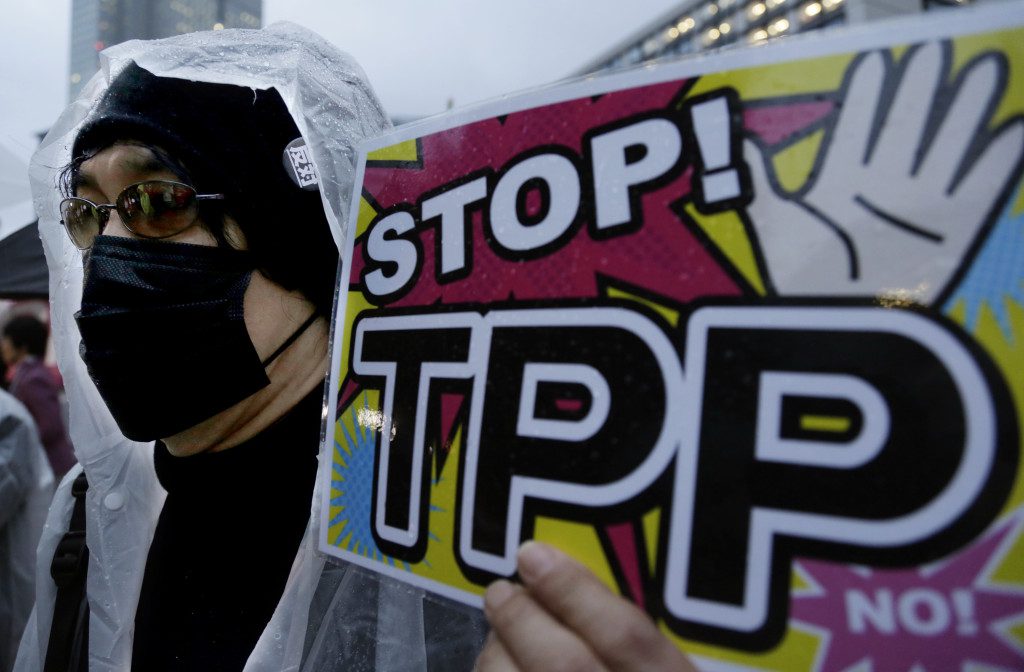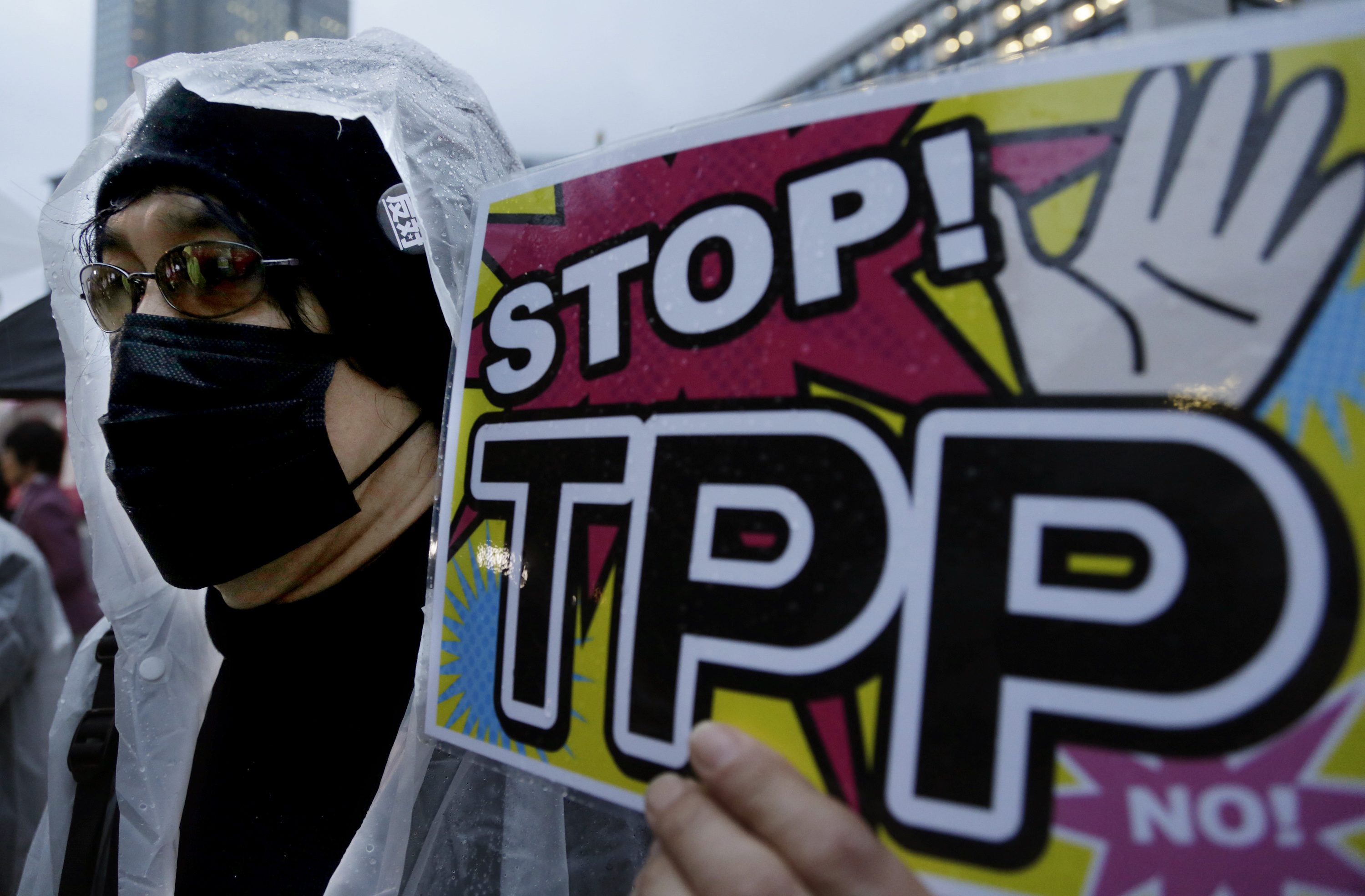
FILE – In this April 22, 2014 file photo, a protester holds a placard during a rally against the Trans-Pacific Partnership (TPP) in Tokyo. The United States is negotiating the ambitious trade agreement with 11 other Pacific Rim countries thats meant to ease barriers to fast-growing Asia-Pacific markets and streamline customs rules. (AP Photo/Shizuo Kambayashi, File)
TPP negotiators will be on Maui at the end of the month, hoping to bring the deal to a conclusion: What history will be made?
The Trans-Pacific Partnership (TPP) is a massive international treaty being negotiated, in secret, by 12 Pacific Rim countries, side-by-side with 500 corporate advisers. After five years, they are aiming to wrap-up the deal on Maui at the end of this month. Meetings with Chief Negotiators begin July 24, followed by what they hope will be the final Trade Ministers meeting from July 28-31. Both the Westin and Hyatt Regency in Lahaina are reportedly hosting the meetings. Hawaii has been a favorite location for several of these high-security meetings because it is geographically isolated, seemingly far away from mass protests that might disrupt their agenda.
The TPP (and its parallel TTIP Atlantic-version and TISA services agreement) aims to lock-in policies that make it easier for the most dominant corporations and banks (mostly monopolies) to rake in profits, and harder for people and democratic governments to decide their own fate in relation to those forces, or to hold them accountable for their actions. It amounts to more regulation protecting the profits and “property rights” of the mega-rich, and less protections for people, workers, the environment, and smaller businesses. The TPP has been described as a “corporate power grab,” a “neoliberal assault,” “a Trojan horse in the global race to the bottom,” “an agreement for the 1%,” a “backdoor” for laws that can’t pass democratically, and a “Christmas wish list for corporations.” It is all of those things.
The TPP is also an attempt by the American state and American capital to assert dominance against the rising economic power and influence of China and the BRICS partners. Rather than strive for a more humane future of greater global cooperation, the U.S. is gripping at hegemony. It’s a decaying imperial game, largely played out since the end of World War II through economic institutions (IMF, World Bank, WTO, trade agreements, etc.) that compel global participation on a chess board already structured to keep benefits flowing in particular directions. In this regard, the wider aims of the TPP are also inseparable from America’s “Pacific Pivot” and militarization.
Source: The Hawaii Independent: Corporate trojan horse comes to Hawaii

